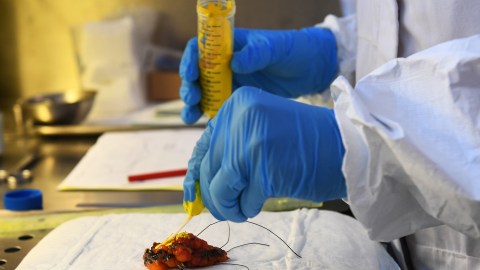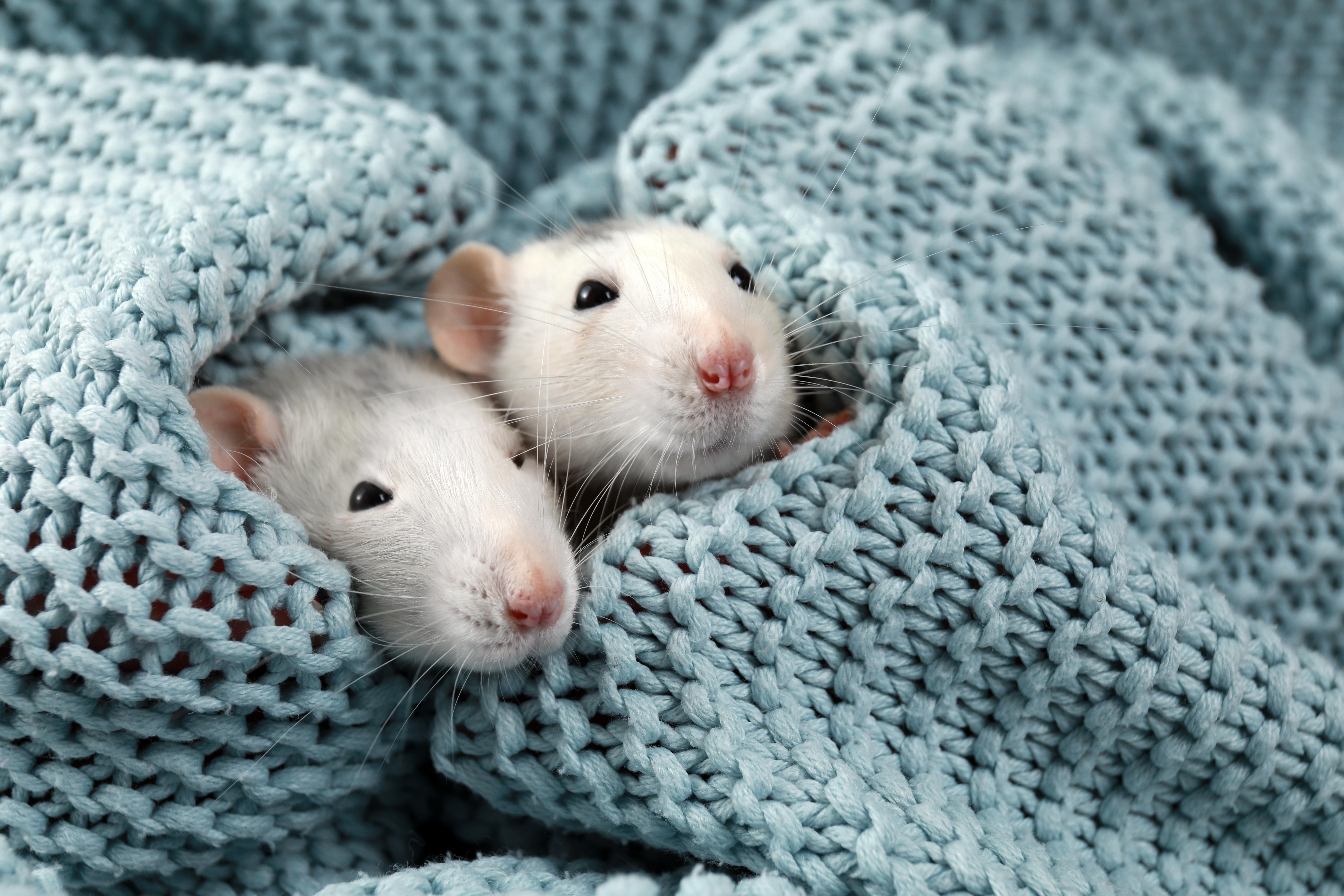High-fructose corn syrup fuels growth of cancerous tumors, new research suggests

A doctor locates cancer in a tumor present in the tissues of a breast fragment. Photo credit: ANNE-CHRISTINE POUJOULAT / AFP / Getty Images
- A new study finds that mice who drink the equivalent of one can of soda a day grew larger tumors than other mice who drank water.
- All of the mice in the study were predisposed to developing cancer, so it is unknown if the corn syrup had any effect on the rate at which they got the disease.
- The results may be applicable to humans, but it is far too early to say that for certain.
In a shocking turn of events for rodents everywhere, a new study, published in Science on March 22, discovered that mice who drank water infused with high-fructose corn syrup grew larger tumors than similar cancer-stricken mice who did not.
Of mice and tumors
A team of researchers genetically altered mice to develop intestinal cancer. This was done by removing the gene that regulates the growth and death of their intestinal cells, all but assuring the rodents would develop the disease quickly. Co-author Dr. Jihye Yun of the Baylor College of Medicine in Houston described this as being similar to “removing the breaks of a car.”
The mice were split into two groups, one was given water to drink and the other was given water spiked with corn syrup. At first the mice were given unlimited access to it and quickly grew obese, so the scientists switched to giving them regulated doses of the stuff equivalent to a person drinking one 12 oz can of soda a day. Not enough to make them put on weight, but enough to have an effect.
It was found that the mice who drank the corn syrup infused water grew larger tumors than the ones who did not, though they got them at about the same rate.
Dr. Yun explained the findings to Science Daily:
“These results suggest that when the animals have early stage of tumors in the intestines — which can occur in many young adult humans by chance and without notice — consuming even modest amounts of high-fructose corn syrup in liquid form can boost tumor growth and progression independently of obesity. Further research is needed to translate these discovery to people; however, our findings in animal models suggest that chronic consumption of sugary drinks can shorten the time it takes cancer to develop.”
So, what you’re saying is corn syrup makes cancer worse in humans? Does soda give people cancer?!?!
No, and don’t you dare say we did.
This study was carried out on mice who were genetically altered to have a disposition to colon cancer. If you’re a mouse with a family history of cancer you might want to be concerned about the findings, but if you’re a human then we can’t say anything just yet.
Of course, soda is all empty calories and drinking too much is bad for you in other ways. Drinking too much diet soda is associated with heart attacks and strokes and the connection between pop and obesity almost goes without saying anymore.
Study co-author Dr. Lewis Cantley did speculate that the increase of colon cancers in humans over the last three decades could be related to this effect in mice:
“This observation in animal models might explain why increased consumption of sweet drinks and other foods with high sugar content over the past 30 years is correlating with an increase in colorectal cancers in 25 to 50-year-olds in the United States.”
He went further and said, “While our work was conducted in mice, our findings build on mounting evidence that sugar fuels cancer growth.” Again, more studies are needed to confirm that this notion is fully applicable in human beings.
So, did we learn anything that is useful for people in the here and now?
Quite possibly.
This study did give insights into how fructose is metabolized by mice and ultimately used to help drive cancer growth. If similar mechanisms exist in humans, it is possible that new treatments could be devised to take advantage of this to slow or stop the growth of tumors.
Dr. Yun explained:
“Our findings also open new possibilities for treatment. Unlike glucose, fructose is not essential for the survival and growth of normal cells, which suggests that therapies targeting fructose metabolism are worth exploring. Alternatively, avoiding consuming sugary drinks as much as possible instead of relying on drugs would significantly reduce the availability of sugar in the colon.”
Does high-fructose corn syrup fuel cancer cells? In some mice it seems to, but it will be years before if we know the same thing happens in humans. Until then, a nice soda every once in a while won’t kill you.





